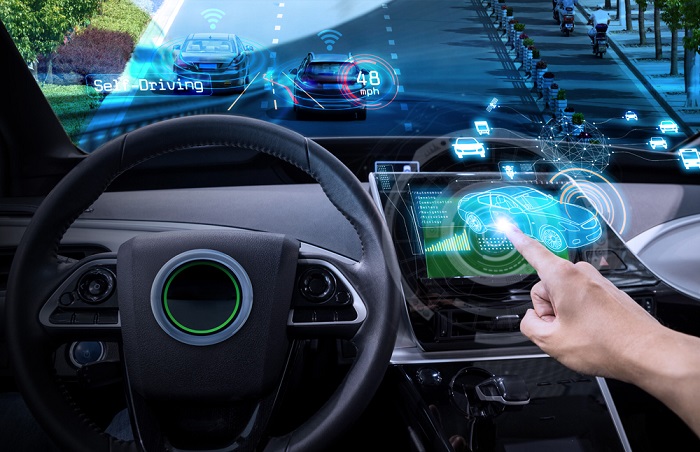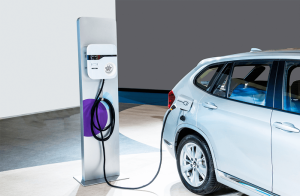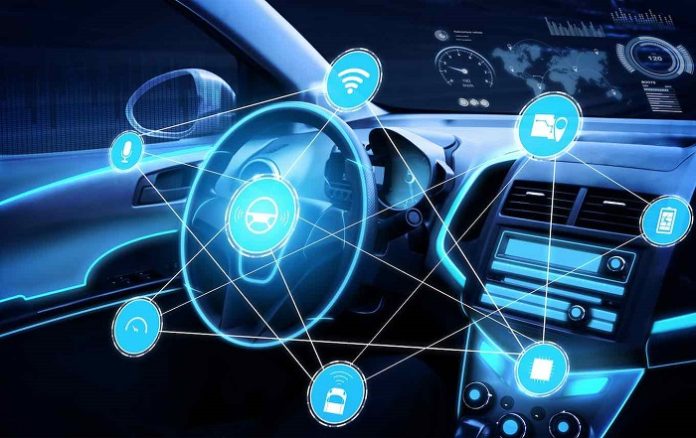Connecting to the internet changed our lives, and now it’s changing our EVs
Internet of Things as an emerging paradigm is filling the right spaces in the ever-expanding technological field. It gradually became an important aspect of people’s lives and can be sensed everywhere. A considerable portion of IoT devices is created for consumer use, including connected vehicles, home automation, wearable technology, connected health, and appliances with remote monitoring capabilities. Driving smart is not just a fancy dream anymore. The increasing use of EVs is driving vehicle digitization as well. When making a switch to electric vehicles, people expect more technological innovations and there is an increased demand for connectivity and mobility solutions.
When electric vehicles were introduced, they had a plethora of issues. With time and technological advancements, progress was made and people started warming up to EVs. But issues like the availability of charging infrastructure, and technical malfunctions still persisted. To accelerate the mass adoption, the EV industry decided to take the internet road.
Advancing electrification is amplifying the need for vehicles to be smart. EVs need an automobile, power grid, telecom, and digital industries to work together to create coherent user experiences leading to faster adoption. Anchoring IoT for this development is the right way. EVs in comparison to conventional vehicles have fewer mechanical components. The software plays a key role in creating product differentiation in EVs. The cutting-edge technology that IoT offers, helps them stay afloat. The application of IoT in infrastructure applications has a great potential to meet sustainability goals.
Applications
Safety and smart driving

ADAS (advanced driver-assistance system) is one of the best-offered features through IoT. It enables real-time monitoring of the vehicles and aids in preventive maintenance offered by the technology making it more reliable. It enables computing the absolute and relative parameters and provides real-time tips to ensure better performance. Smart ADASs connected to the Internet of Things (IoT) by mobile data or WiFi also take inputs from other vehicles (vehicle-to-vehicle, V2V) and surrounding infrastructure such as buildings and roads (vehicle-to-vehicle, V2X). Features like real-time tracking and geo-fencing can help in enhancing the security of the vehicle. The feedback data collected based on the performance can help the companies work on improving the features. Companies like Robert Bosch (Germany), Continental AG (Germany), ZF Friedrichshafen (Germany), Denso (Japan), Aptiv (UK), Valeo (France), and Magna International (Canada) dominate the global ADAS market. The global market for ADASs is expected to grow at a 15.9% compound annual growth rate (CAGR) by 2025 and is currently valued at an estimated $11.83 billion. Combined with the rapid growth of the EV market, this will lead the majority of cars on the roads in the future to come equipped with these safety and enhancement technologies. India however, is still not the ideal market for ADAS technology development. ADAS requires good road infrastructure to be a success. Most local roads have little to no markings for lane keeping which makes them limited to expressways and well-paved highways. Lack of enough data about road conditions, traffic patterns, and people’s driving habits stand as primary hurdles. India also has a problem of stray animals wandering onto roads, something which is not that prevalent in more developed countries. It will take some time for Indian roads and vehicles to be ready to have smooth access to this technology.
Battery management
The BMS controls and monitors the battery processes and performance and provides the necessary data to algorithms that decide the battery’s overall health. Maintaining the charging and discharging cycle, ensures optimal battery health and reduces battery damage. BMS takes various sensor readings of your vehicle and monitors the data. The BMS must be able to cope with the complex nature of power batteries, such as high capacity, high power, wide temperature variation, and harsh driving conditions. IoT helps estimate the power, state-of-charge, and state-of-health and maintain them by enabling the remote data logging facility. In scenarios where the battery malfunctions, the onboard sensor data obtained through IoT can help in managing the challenges. Then, these can be run through AI-based models for performance evaluation. Evolute Cleantech Solutions, Spark Innovations, Bacancy, Ziptrax Cleantech, and Grinntech are some Indian companies providing good battery management systems. Models are characterized using the data collected from each step. These are integrated with AI before deploying on a server. The EV sends crucial sensor data to the server, providing insights on the next course of action and performance. It detects and reacts to ground faults.
EV charging infrastructure

Electric vehicle users face challenges like knowing when and where to charge. Electric vehicle monitoring solutions with telematics notify the user regarding the low battery level of the vehicles along with the location of nearby charging stations. With IoT technology, EV charger stations become smart, connected, and hence easily accessible for remote support and maintenance. EV charging stations are integrated with various third-party service providers such as energy suppliers, e-MSPs, and charge point operators. They use various protocols & connectivity options and back-end cloud infrastructure to ensure seamless charging operations such as payment processing, software updates, scheduling, predictive maintenance, and usage analytics. YoCharge, ABB, Tata Power, and Delta Electronics are among some of the companies that have successfully developed the EV charging infrastructure in India.
Fault Alert and Preventive Maintenance System
An electric vehicle, being a machine is bound to experience technical glitches. IoT-based fault alert systems help to alert drivers regarding EV faults, giving them time to act and address them by monitoring the internal parameters such as heating rate, engine oil level, and status of the CO of the vehicle. In addition, it is necessary to know the overall temperature and moisture conditions in various geographies, and keeping a check on remote performance is essential. This leads to a better customer experience as they will find it to be reliable. With the help of IoT-based telematics technology, data is collected when connected to vehicle sensors, and it can be rapidly displayed through widgets, send instant notifications, and generate automatic reports. Though EVs are well designed to prohibit errors, sometimes parts might fail or stop. To avoid landing in situations like these, electric vehicles are being developed to help the driver stay out of trouble, as much as possible. Technical glitches are unavoidable in machines. More advanced working mechanism invites more chances of faults because of the complex working structure. IoT-based applications which are exclusively focused on early fault detections also help in maintaining the overall health of the vehicle so that rectifications can be made before the damage is severe.
EVs are the future of roads and bringing the internet into the picture will push them to more heights, enabling mass popularity and a smooth driving experience. EV experience is not complete without digital interfaces, like access through mobile phones and rich intelligence through vehicle data collected over time. Route planning and optimization using these rich data sets and algorithms is the key to the success. India is gradually accepting EVs and the government is working towards increasing awareness regarding the advantages of switching to electric.








